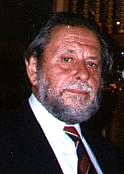Extraordinary Physics, or Is Modern Theoretical Physics Just a Teetering 'House of Cards'?
Year: 2011 Pages: 9
Like a house of cards, scientific theories depend on and support one another, so that those at the base cannot be disturbed without everything above them falling down. Such an edifice is what, in contexts of science, Thomas Kuhn called a ?paradigm'. Many of those who use this term most familiarly, nowadays, are often unaware of what, in its Kuhnian context, a ?paradigm' really means. In the modern vernacular, an appropriate variant for this is, perhaps, ?mindset'. A typical example of this mindset is the manner of thinking about the world that was bequeathed to us by Galileo and Newton. So ingrained has this become in our Western cultural psyche that most members of our society cannot even contemplate thinking about the world in any other way. Having imbibed it ?with their mother's milk', as it were, they believe, implicitly, that this way of thinking into which they happened to have been born and educated represents the one and only true ?realism' there is, and that in comparison with it any other, radically different way of thinking is tantamount to lunacy. Consequently, when a different paradigm comes along, few people can cope with it. For example, when this classical-science paradigm of Galileo and Newton ? quaintly called ?Realism' ? was found to be flawed in some of its basic assumptions, namely, those of time, space and motion, this call for a whole change of paradigm, or ?new physics', could not be accommodated by those steeped in the old familiar ?realism'.


